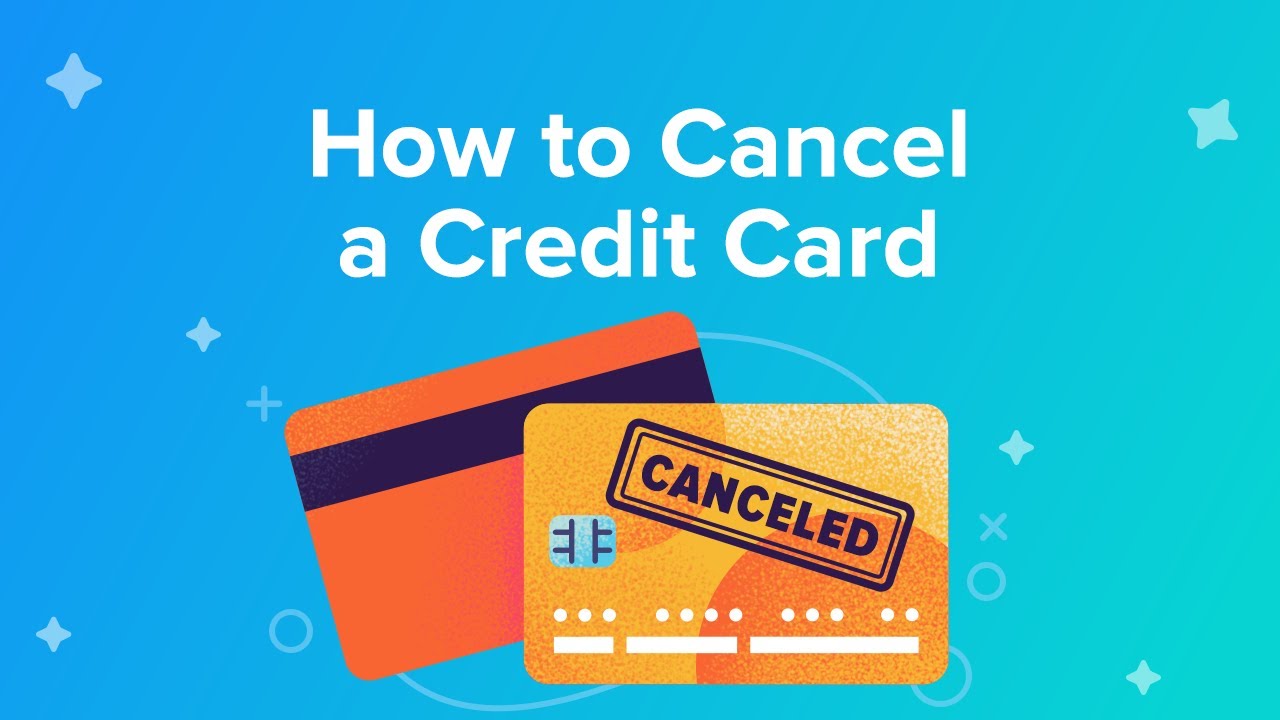A credit card can be canceled without harming your credit score; just remember that paying down credit card balances first (not just the one you’re canceling) is key. Closing a charge card won’t affect your credit history (history is a factor in your overall credit score).
Similarly, How many credit cards should you have?
Credit bureaus suggest that five or more accounts — which can be a mix of cards and loans — is a reasonable number to build toward over time. Having very few accounts can make it hard for scoring models to render a score for you.
Is it better to cancel a credit card or just not use it? In this article:
In general, it’s best to keep unused credit cards open so that you benefit from a longer average credit history and a larger amount of available credit. Credit scoring models reward you for having long-standing credit accounts, and for using only a small portion of your credit limit.
Thereof, Is it better to close a credit card or leave it open with a zero balance?
The standard advice is to keep unused accounts with zero balances open. The reason is that closing the accounts reduces your available credit, which makes it appear that your utilization rate, or balance-to-limit ratio, has suddenly increased.
Does opening a new credit card lower your score?
Opening a new credit card can temporarily ding your credit score. When a card issuer looks at your credit information because you’ve applied for a credit card, it is a so-called “hard pull.” That can lead to a slight drop in your credit score, whether you are approved or not.
Does having a lot of credit cards hurt you?
Having too many outstanding credit lines, even if not used, can hurt credit scores by making you look more potentially risky to lenders. You can boost your score in some cases by opening new credit cards if the new credit lines lower your overall utilization ratio.
Does payoff hurt your credit?
You can get your Payoff rate without affecting your credit score; Payoff does a « soft pull » on your credit score, which, unlike a hard pull, does not show up on your credit report and does not change your FICO score.
How do I get rid of a credit card without hurting my credit?
How to Cancel a Credit Card Without Hurting Your Score
- Consider the Timing and Impact on Your Credit. …
- Pay Down the Balance. …
- Remember to Redeem Any Rewards. …
- Contact Your Bank to Cancel. …
- Don’t Accept Their Offers. …
- Write a Letter for Your Records. …
- Check Your Credit Report to Ensure the Account Is Closed.
Should I leave a small balance on my credit card?
It’s Best to Pay Your Credit Card Balance in Full Each Month
Leaving a balance will not help your credit scores—it will just cost you money in the form of interest. Carrying a high balance on your credit cards has a negative impact on scores because it increases your credit utilization ratio.
Do you get charged for not using a credit card?
Credit card inactivity fees are banned by law. As a result, not using your credit card (at least not regularly) can be a great strategy if you want to build credit but are worried about overspending. You just have to make sure your balance is $0 when you stop using your card.
How do you get a 850 credit score?
According to FICO, about 98% of “FICO High Achievers” have zero missed payments. And for the small 2% who do, the missed payment happened, on average, approximately four years ago. So while missing a credit card payment can be easy to do, staying on top of your payments is the only way you will one day reach 850.
Does carrying a balance hurt credit?
Carrying a balance on your credit card does nothing for your credit, yet it’ll cost you money over the long run. After all, the average credit card APR is currently around 16%, so even interest on small balances can add up in a hurry.
Is it better to pay off a credit card in full or leave a small balance?
It’s Best to Pay Your Credit Card Balance in Full Each Month
Leaving a balance will not help your credit scores—it will just cost you money in the form of interest. Carrying a high balance on your credit cards has a negative impact on scores because it increases your credit utilization ratio.
How can I raise my credit score 40 points fast?
Quickly Increase Your Credit Score by 40 Points
- Always make your monthly payments on time. …
- Have positive information being reported on your credit report. …
- It is imperative to drop credit card debt altogether. …
- The last thing you can do is check your credit report for inaccuracies.
Is Creditkarma accurate?
Here’s the short answer: The credit scores and reports you see on Credit Karma come directly from TransUnion and Equifax, two of the three major consumer credit bureaus. The credit scores and reports you see on Credit Karma should accurately reflect your credit information as reported by those bureaus.
What is an excellent credit score?
Although ranges vary depending on the credit scoring model, generally credit scores from 580 to 669 are considered fair; 670 to 739 are considered good; 740 to 799 are considered very good; and 800 and up are considered excellent.
Should you cancel credit cards that are paid off?
I’m guessing you are asking about credit cards. If so, the short answer is usually no, you don’t need to close the accounts. Paying down or paying off your credit cards is great for credit scores, but closing those accounts will likely cause your credit scores to dip, at least for a little while.
Is it better to have 1 or 2 credit cards?
Having at least one credit card for the rewards and convenience is a good idea, assuming you don’t have issues managing money and will be able to make payments on time. You may want more than one if you plan to use different types of rewards or if you need additional lines of credit.
Is it bad to have a credit card and not use it?
If you haven’t used a card for a long period, it generally will not hurt your credit score. However, if a lender notices your inactivity and decides to close the account, it can cause your score to slip.
Does anyone have a credit score of 850?
The truth is, Americans with a perfect 850 FICO® Score do exist. In fact, 1.2% of all FICO® Scores in the U.S. currently stand at 850. Think of it as the alternate—and perhaps slightly less glamorous—1 percent. Of course, you don’t need a perfect score to access credit at the best terms and lowest interest rates.
Do credit card companies like when you pay in full?
Credit card companies love these kinds of cardholders, because people who pay interest increase the credit card companies’ profits. When you pay your balance in full each month, the credit card company doesn’t make as much money.
Join TheMoney.co community and don’t forget to share this post !





